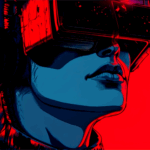In the Spring 2025 Demo Day, Y Combinator—Silicon Valley’s most prestigious startup accelerator—quietly revealed a revolution: nearly half of the startups showcased were building around AI agents.
Out of 144 companies, 70 leveraged autonomous agents in some form, spanning healthcare, developer tools, customer service, robotics, and even logistics. From multi-agent systems coordinating delivery fleets to solo-agent assistants automating your inbox, these founders are betting that agentic AI is not just a feature—it’s the business model.
Why is this significant?
YC doesn’t fund based on hype. Their model is based on spotting early technical breakthroughs and commercial potential. If half their cohort is working on agents, it signals that the agent paradigm is maturing—fast. Agents are evolving from novelty demos to integrated, intelligent systems with defined goals, memory, and autonomy.
Companies like Taskerly, which automates web tasks via browser agents, and Codemate, a dev tool that opens bug-fix PRs automatically, stole the spotlight. Meanwhile, stealth-mode companies are quietly training agents to negotiate contracts, schedule medical visits, or even run drop-shipping stores—all with minimal human input.
For developers and entrepreneurs, this isn’t just another wave—it’s a new operating system for the internet. The tools, infra, and APIs are being rebuilt for agents.
The question isn’t if AI agents will go mainstream. The question is: what role will your agent play in this new economy?






